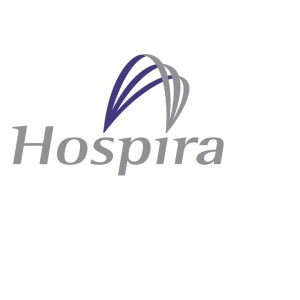 Recently, IBD News Today reported on how Hospira, Inc. announced the launch of Inflectra (infliximab), the first biosimilar monoclonal antibody (mAb), in major European markets. Now, the company has been invited to the European Crohn’s and Colitis Organisation Inflammatory Bowel Diseases (ECCO-ibd) conference to present the latest research updates on the usage of Inflectra. The results show that patients treated with Inflectra have a comparable response to those treated with reference drug Remicade® (infliximab) to address both Crohn’s disease and ulcerative colitis. The data presented supports Inflectra’s indication as an inflammatory bowel disease (IBD) treatment.
Recently, IBD News Today reported on how Hospira, Inc. announced the launch of Inflectra (infliximab), the first biosimilar monoclonal antibody (mAb), in major European markets. Now, the company has been invited to the European Crohn’s and Colitis Organisation Inflammatory Bowel Diseases (ECCO-ibd) conference to present the latest research updates on the usage of Inflectra. The results show that patients treated with Inflectra have a comparable response to those treated with reference drug Remicade® (infliximab) to address both Crohn’s disease and ulcerative colitis. The data presented supports Inflectra’s indication as an inflammatory bowel disease (IBD) treatment.
The results are based on an ongoing prospective, independent and nationwide study in Hungary that enrolled 57 patients with Crohn’s disease and 33 with ulcerative colitis. Patients were treated with Inflectra and the outcomes were assessed after 2 and 6 weeks of treatment. During induction therapy in ulcerative colitis patients, a reduction of the inflammation marker C-reactive protein (CRP) was registered and 4 of the 90 patients, those who had previously been treated with anti-TNF drugs, experienced an allergic reaction to treatment. The abstract of this study can be viewed at: “P314 Biosimilar infliximab in inflammatory bowel diseases: first interim results from a prospective nationwide observational cohort.”
Peter Lakatos, the leader of the research group, said in a press release: “The results of this study thus far have been deeply informative to confirm the clinical efficacy and safety of biosimilar infliximab following its introduction to the Hungarian market last year. The induction and maintenance of remission in patients prescribed Inflectra are exactly as we would expect to see with Remicade.”
Another abstract reports that the biosimilar could save between €76 million and €336 million in 2 years across Italy, France and the United Kingdom. More can be read at: “P137 5 year budget impact analysis of CT-P13 (Infliximab) for the treatment of Crohn’s Disease in UK, Italy and France.” Biologic medicines have been found to impact the lives of more than 2.2 million people in Europe with ulcerative colitis and Crohn’s disease, but they can be too expensive to maintain for those with lifelong diseases. Biosimilars offer a more affordable but still effective alternative that can respond to these patients’ needs.
“The introduction of biosimilars provides an opportunity to reduce the high cost of biologic treatment, giving patients access to more affordable care without compromising on quality, safety or efficacy. The dataset collected under the nationwide registry in Hungary further validates the long-established biosimilar regulatory pathway in the EU, and in particular the principle of extrapolation, which is fundamental to the biosimilar concept,” said Paul Audhya from Hospira.

